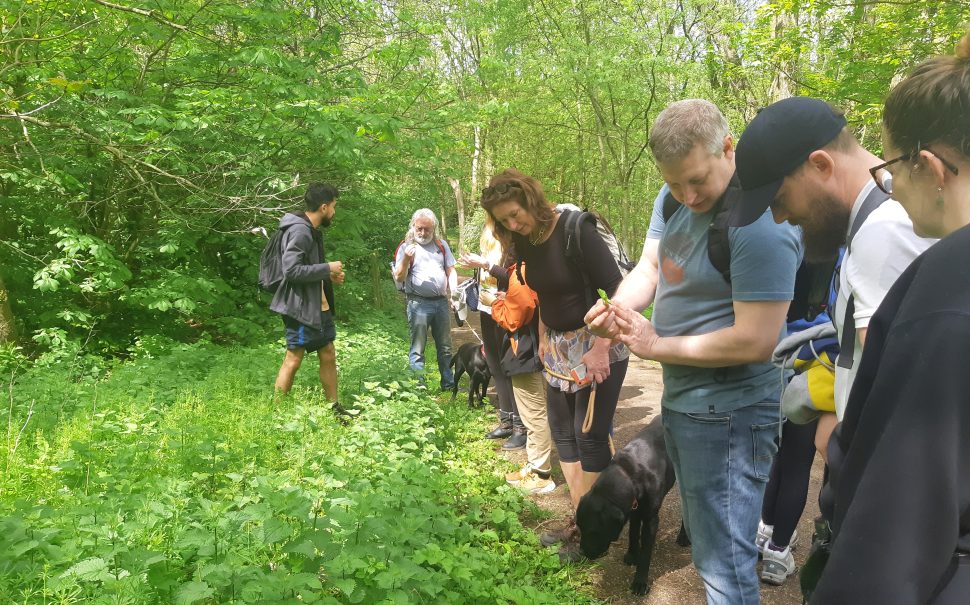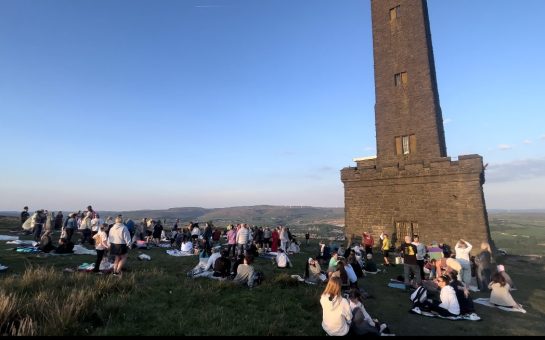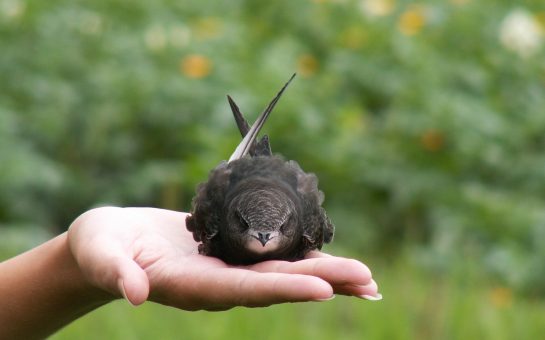Workshops teaching people how to find edible plants are surging in popularity across the UK, including in Manchester.
ForageBox is an online food shop that sells products made only with wild ingredients, and also runs foraging workshops to teach people how to find their own greens, fruit, and mushrooms.
Mancunian Matters attended one of these workshops in Chorlton Water Park and Kenworthy Wood on May 7th.
The session was led by Ibrahim Ahmed, an experienced forager with a PhD in cancer biology, who got into the hobby because of his interests in pharmacological plants and cooking with new ingredients.
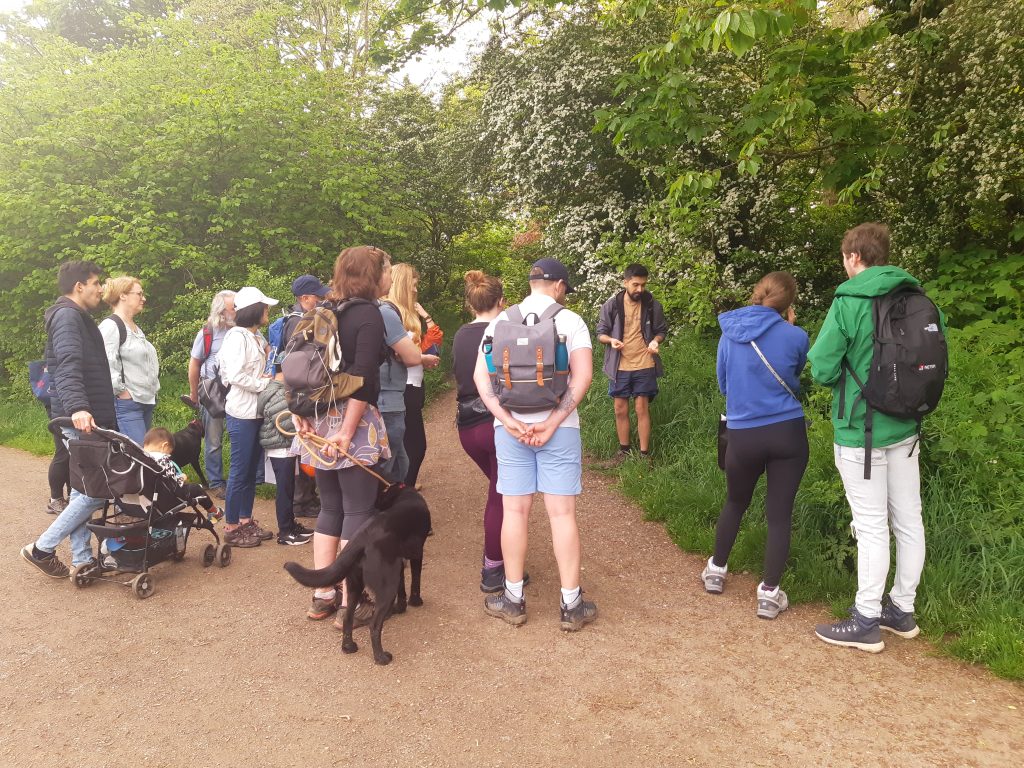
“Today we’re focusing on the four F’s of foraging: fruits, foliage, fungi and flowers.” Ibrahim explained at the start of the workshop.
Each session focusses on edible plants so attendees can use what they find as ingredients in their cooking.
Safety is vital when foraging edible plants. While poisonous plants and fungi are rare, you shouldn’t eat anything wild without being certain that it’s safe.
Or as ForageBox puts it – “Don’t munch on a hunch!”
“We do want to help you get close to nature, but not so close that you end up underground!” Ibrahim joked.
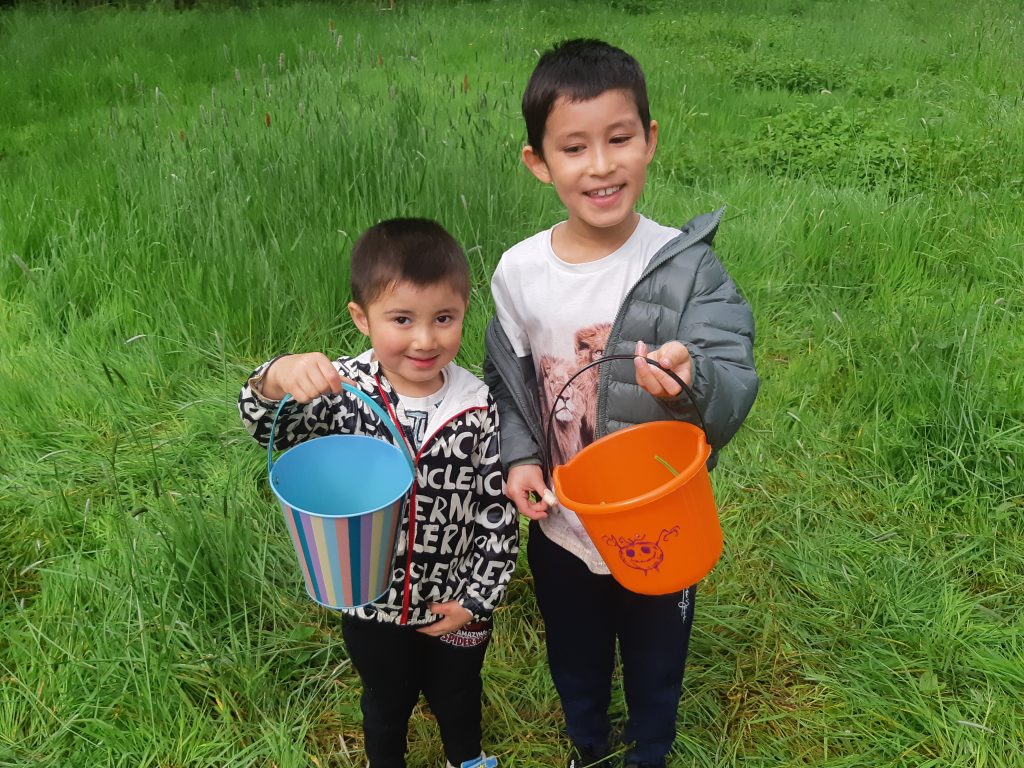
The workshop’s attendees included families, couples and individuals from a wide range of backgrounds – most of whom had never done foraging before.
But by the end of the session they had picked wild garlic, three-cornered leek, St George’s mushrooms, sorrel, nettles, and several other British plants and fungi.
Elisabeth, who took part in the workshop, said: “It’s been great! There’s so much to learn – I don’t know much about the natural world, really.
“But now I’ve heard Ibrahim talking about people coming in and just stripping away all the plants – there needs to be more education I think.”
Interest in foraging is rising across the UK, not just in Greater Manchester.
“Partially the reason we’ve had this resurgence in foraging is people starting to get more aware of the climate, but also have more access to land because of things like the Countryside and Rights of Way Act.” Ibrahim said.
“People are becoming more conscious of where their food comes from, and I think there’s just generally a bigger push to get back in tune with nature.”
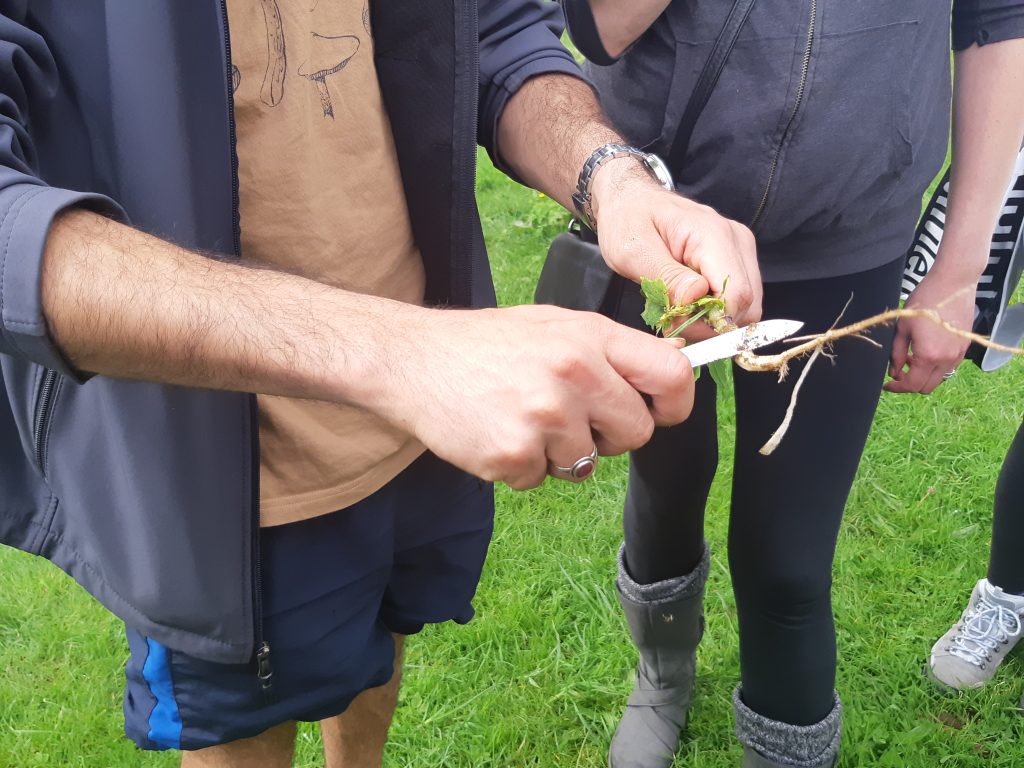
The Countryside and Rights of Way Act, also known as the ‘Right to Roam Act’, was passed in 2000 and protects public access to woodland, parks and other wilderness spaces.
Ibrahim said: “Before it was enshrined in legislation, all the land was packaged up and given off to private landowners, and, as such, things like mushroom foraging are a knowledge that’s been lost for generations – people are starting to learn it now, but because it has been lost, there’s a lot of myths around.”
While most foragers are just hobbyists looking to learn a new skill, some people are also turning to foraging out of desparation as food prices skyrocket.
